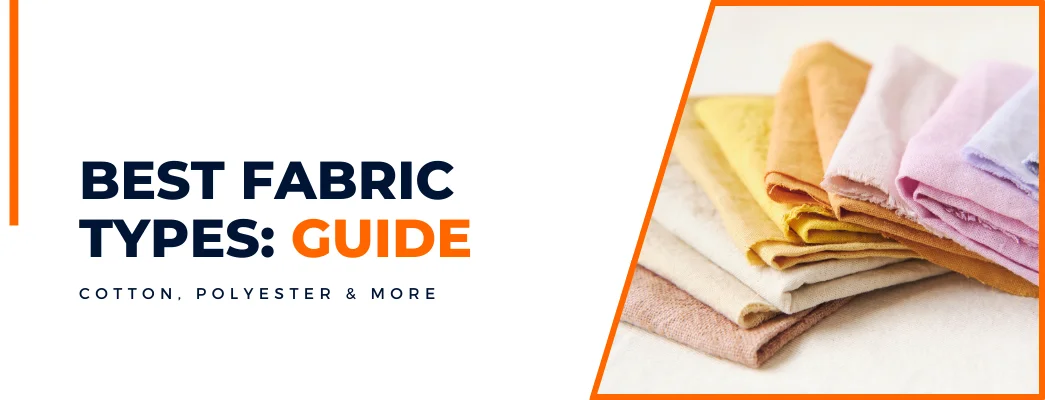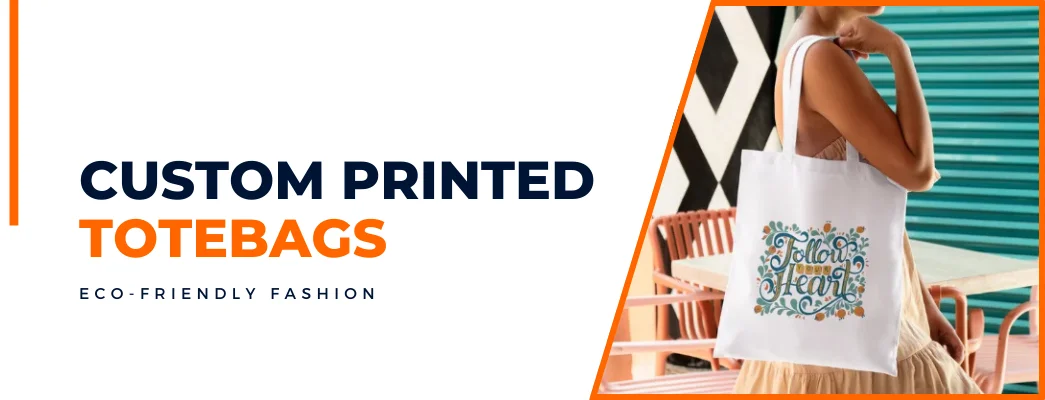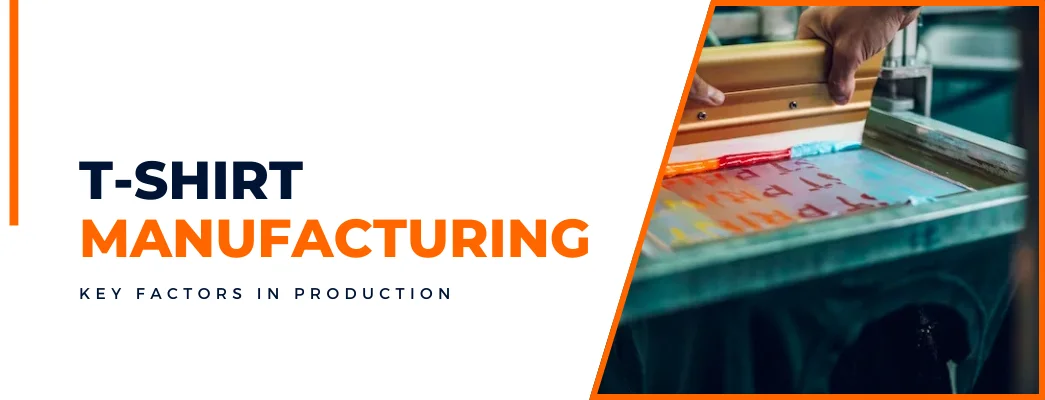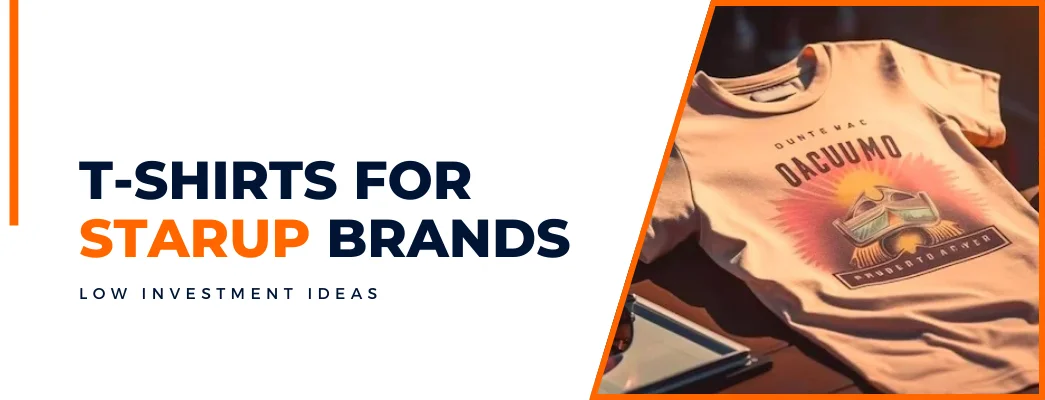Did you know what plays a crucial role in choosing T-shirt products?
If you are a seller, choosing the right T-shirt fabric type is essential for comfort, durability, and style. Whether you are looking for breathable fabric or suitable for summer and winter sessions, understanding different T-shirt fabric types is essential.
In this blog guide, we share the best fabrics for T-shirts and their pros and cons so you can choose which type is best for your business.
What are t-shirts made of
T-shirts are made of different fabric types and depend on factors like comfort, use case, and personal preference. In today’s fashion world, T-shirts are made from any type of fabric, from cotton to Satin. Each type has unique qualities and features. Let’s discuss the most popular T-shirt fabric types in India.
Best fabric for T-Shirts India
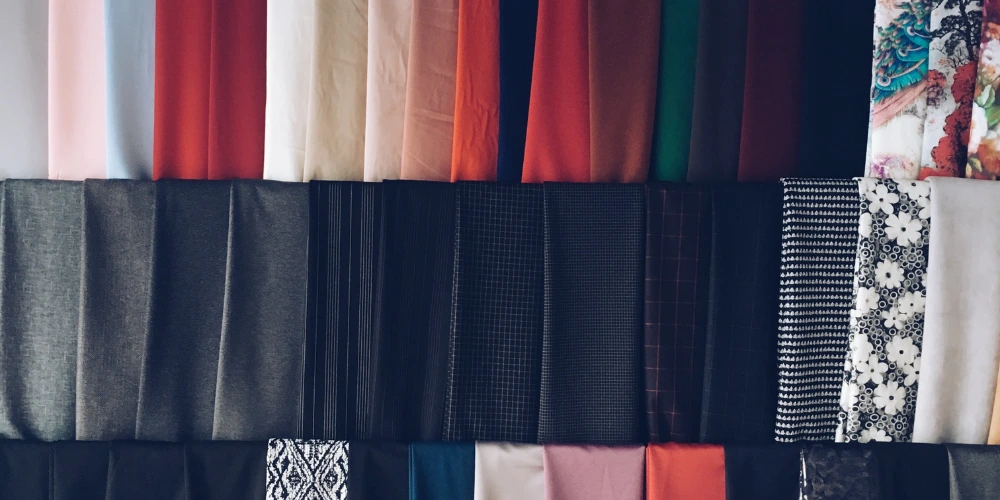
India is one of the world’s largest producers of textiles and apparel products. The Indian textile and apparel industry is highly diversified and offers a wide range of fabric types. When it comes to T-shirts, comfort is key. Let’s explore the best fabrics for T-shirts and their pros and cons.
- Cotton
- Polyester
- Linen
- Lycra
- Bamboo
- Cotton Polyester Blends
1. Cotton fabric t-shirt

Cotton plays a significant role in Indian T-shirt manufacturing. Also, India is the largest cotton producer (23%) in the world, and it’s the 2nd largest consumer and cotton producer globally.
What is Cotton Fabric?
Cotton is a natural fiber derived from the cotton plant. It is known for its softness, breathability, and versatility. It’s widely used in clothing, textiles, and more. Cotton fabric can vary in quality based on factors like fiber length, processing methods, and finishing techniques. These fabrics are soft, breathable, and comfortable for everyday wear.
Features of cotton fabric
- It absorbs moisture
- Good Heat resistance
- Absorbs water
- It can withstand heat, detergents, and bleach
- Good color retention
- Prints well
Types of Cotton
Cotton comes in various types, each with unique characteristics. Here are the common cotton fabric types used in T-shirts.
1. Combed cotton
This type of cotton has undergone a special manufacturing process to enhance its quality. During this process, the cotton fibers are combed to remove short fibers and impurities. This results in longer, smoother fibers that are softer and stronger than regular cotton.
2. Organic cotton
It is a type of cotton grown organically and comes from non-genetically modified plants. This means it is grown without the use of toxic, persistent pesticides and fertilizer. It is best for sensitive skin and is a hypoallergenic fiber with a very soft touch.
3. Supima cotton
It is a superior type of cotton grown in the USA. It’s known for its softness, durability, absorbency, and breathability.
4. Pima cotton
It’s an extra-long staple cotton grown in the southwest US and Peru. It’s a durable and soft fabric. It’s highly resistant to pilling, tearing, and stretching.
5. Slub cotton
This fabric feels more natural, and it creates a textured appearance. The texture allows for better air circulation. It is generally easy to wash and maintain
6. Pique Fabric Cotton
Pique fabric is a cotton knit fabric covered with textured patterns. It is generally medium-weight and is primarily used for crafting Polo T-shirts.
Pros:
- It allows air circulation, making the T-shirt comfortable to wear in warm weather.
- It’s naturally soft and best for sensitive skin types.
- It’s durable and comfortable for regular wear.
Cons:
- Superior quality cotton varieties are cost-expensive.
- It quickly shrinks in hot water and wrinkles easily.
In TeeTalkies, we offer excellent, premium-quality cotton T-shirt collections in different types.
We also offer 30+ colors of Plain T-shirts for screen printing and DTG Printing. Let’s check out our product range.
Get Quote Now !2. Polyester fabric t-shirt
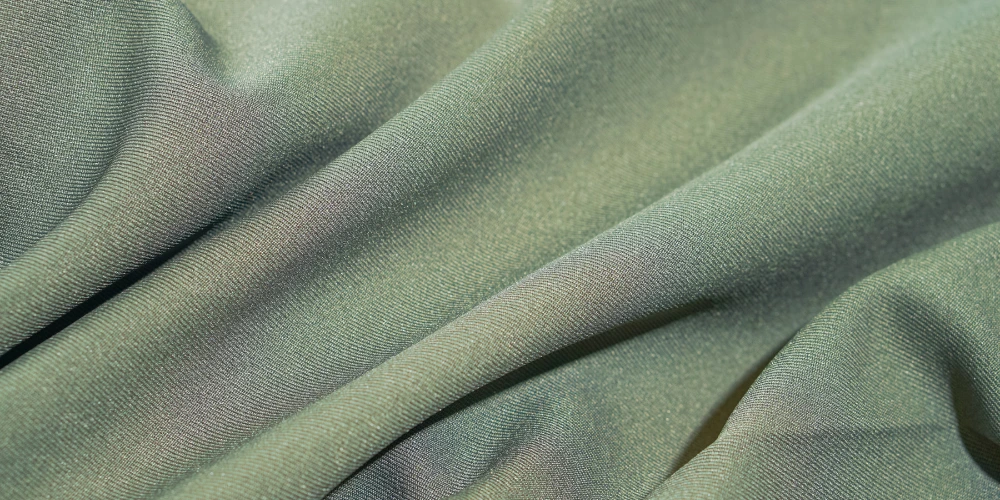
Polyester is a synthetic fabric made from petroleum-based chemicals. It is one of the most famous textiles used in the apparel industry. Polyester is more durable than cotton.
Also, they don’t shrink quickly.
Features of polyester Fabric:
- It’s durable
- Lightweight
- Resistant to shrinking and wrinkling
- Quick drying capabilities
- It can be recycled
- Good elasticity
Pros:
- It doesn’t wrinkle easily compared to cotton fabric
- It’s more cost-effective than cotton fabric
- It holds its shape well, it’s easy to maintain, and it takes less ironing
Cons:
- It’s less breathable than natural fibers
- It can be sensitive to high temperatures and not suitable for sensitive skins
- It can cause skin irritation
- Made of artificial fabrics that accompany numerous horrible chemicals
3. Linen t-shirt fabric
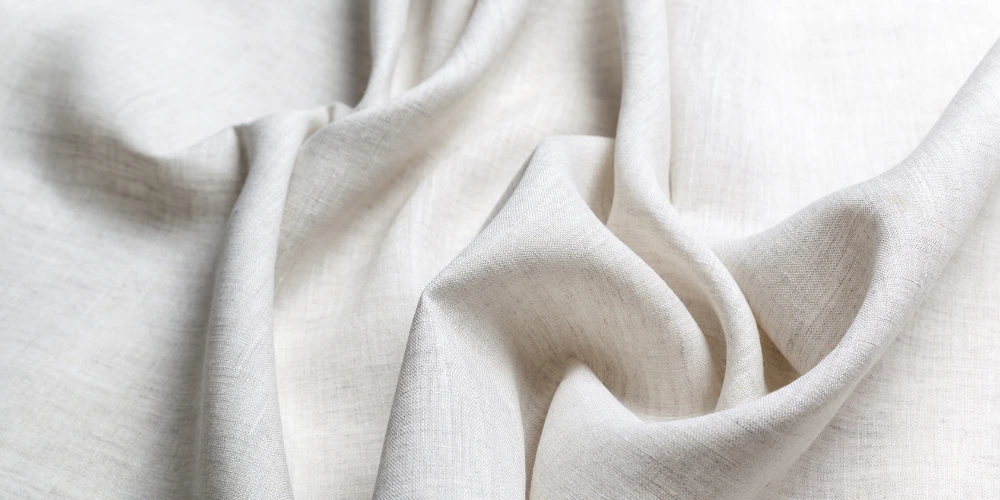
Linen is made from the flax plant, Linum usitatissimum. It is very strong and absorbent and dries faster than cotton. Linen is a natural insulator, keeping you warm in the winter and cool in the summer. Various types of linen are available, and each has its own characteristics.
- Plain Linen
- Damask Linen
- Loose-Woven Line
- Blended Linen
Features of linen fabric:
- Extremely absorbent
- It’s a very durable fiber
- It absorbs moisture
- It allows the skin to breathe
Pros:
It’s a comfortable fabric for warmer weather.
It’s suitable for sensitive skin types.
It’s naturally hypoallergenic.
Cons:
They are expensive.
It wrinkles too much.
They are less durable compared to other fibers.
4. Lycra fabric
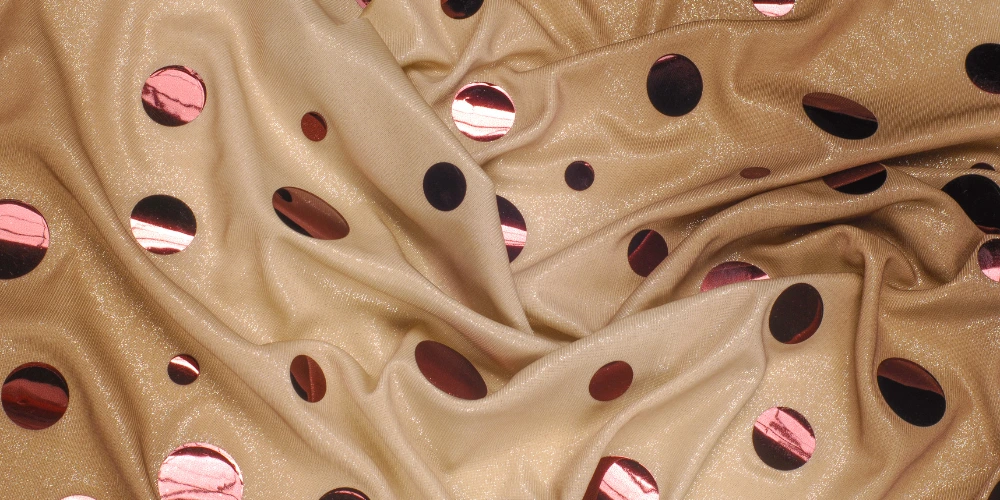
Lycra is a handmade synthetic fiber made from polyurethane. Because of its unique chemical makeup, it is stretchy and elastic, and it can be stretched up to five times its original length. It keeps its shape over time so it doesn’t lose its fit. The fabric can be blended with other materials, making it suitable for a wide range of clothing styles, from sportswear to fashion-forward pieces.
Features of lycra fabric:
- Elasticity
- Comfort
- Durability
- Moisture wicking
- Versatility
Pros:
- Lycra provides a comfortable fit against the skin.
- It resists degradation from sweat, oils, and UV light.
- It can easily blended with various fabrics.
- It has superior stretch and durability.
Cons:
- It can lose its elasticity over time
- It’s not suitable for skin-sensitive peoples
- Less breathable than natural fibers
5. Rayon fabric
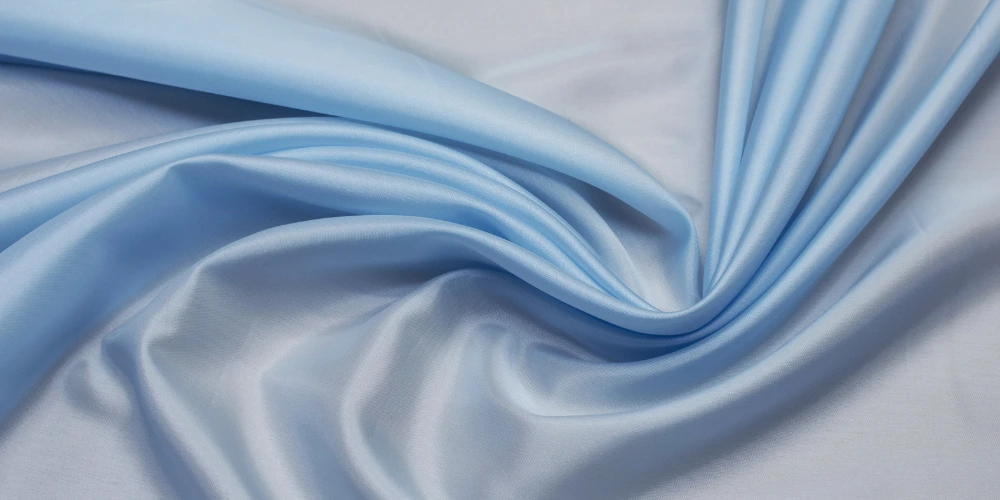
Rayon is a breathable fabric made from regenerated cellulose fibers, which allow air to circulate through the fabric. It is made from natural products such as wood pulp. The source of the fiber is not synthetic; there is a chemical process that creates semi-synthetic rayon fabric. There are 3 types of rayon available in the market such as:
- Viscose Rayon
- Modal
- Lyocell
Features of rayon fabric:
- Smooth texture
- Shiny
- Moisture-absorbent.
- Breathable
Pros:
- It’s softer and doesn’t shrink as much.
- This fabric gives a luxurious appearance.
- It’s a good choice for warm climates and summer sessions.
- It takes dyes well and results in excellent color patterns.
Cons:
- It’s shrinkable.
- It’s prone to wrinkling.
- Sometimes, rayon fabric needs dry cleaning and special washing methods for maintenance.
6. Bamboo fabric
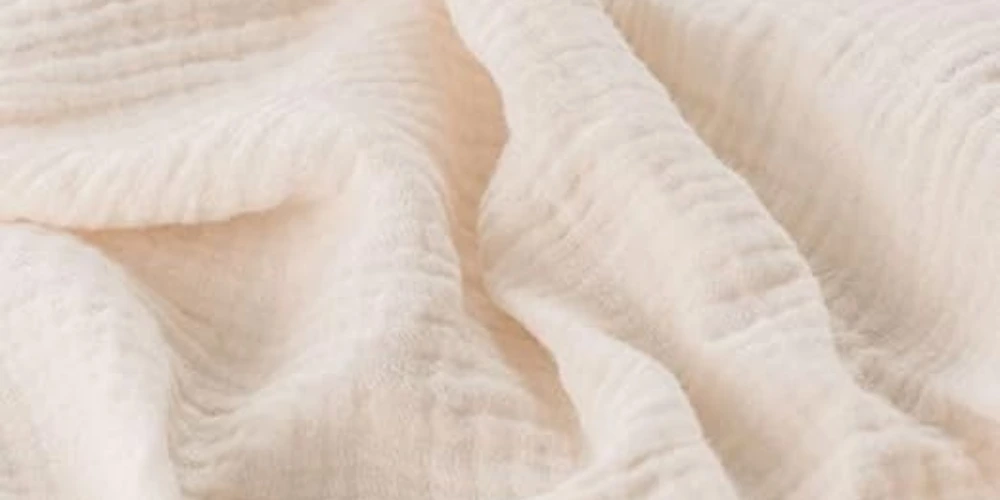
Bamboo fabrics are made from fibers from bamboo plants, which are processed to extract cellulose. They are adorable, soft, and silky and can be very strong. Also, it’s not a synthetic material.
Features of bamboo fabric:
- Durability
- Moisture wicking
- Sustainability
- Hypoallergenic
- Soft feel
Pros:
- It has antibacterial properties
- Cool and breathable
- Softer than cotton
- It offers UV protection
- It keeps skin dry and comfortable
Cons:
- Bamboo fiber can be expensive.
- It’s not durable compared to cotton fabrics.
- It is not easy to dye.
7. Cotton Blend Fabric
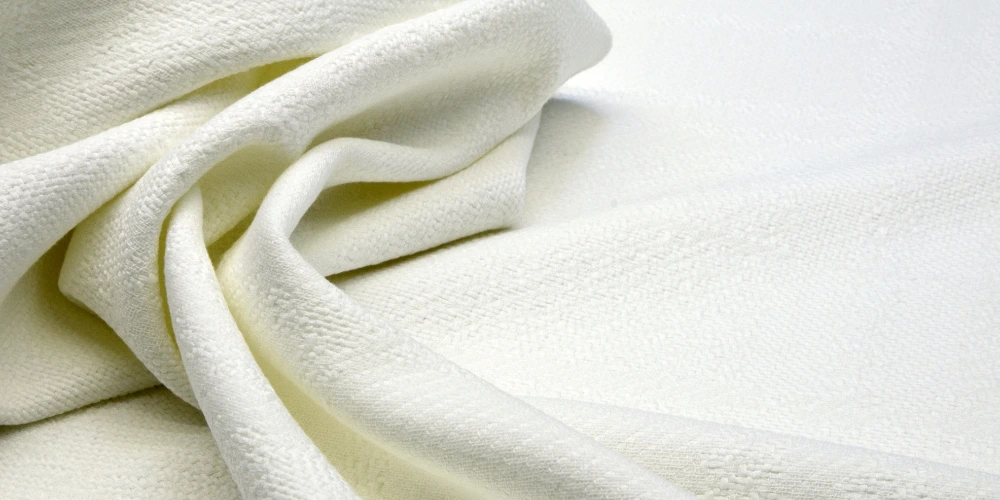
Cotton blend fabric is made from a combination of cotton and one or more other fibers, such as polyester, rayon, Lycra, and linen.
The purpose of blending cotton with different materials is to enhance the fabric’s properties, resulting in a product that may be more versatile, durable, and comfortable than pure cotton alone.
Features of cotton blend fabric:
- Softness
- Durability
- Wrinkle and shrinkage resistance
- Moisture wicking
Pros:
- It keeps cool during hot sessions.
- Blends can be more durable and resistant to wrinkles, shrinking, and fading.
- Blended fabrics are more affordable than 100% cotton.
Cons:
- Some cotton blend fabrics are not breathable.
- Cotton blends may require specific washing instructions.
Which fabric is best for t-shirt?
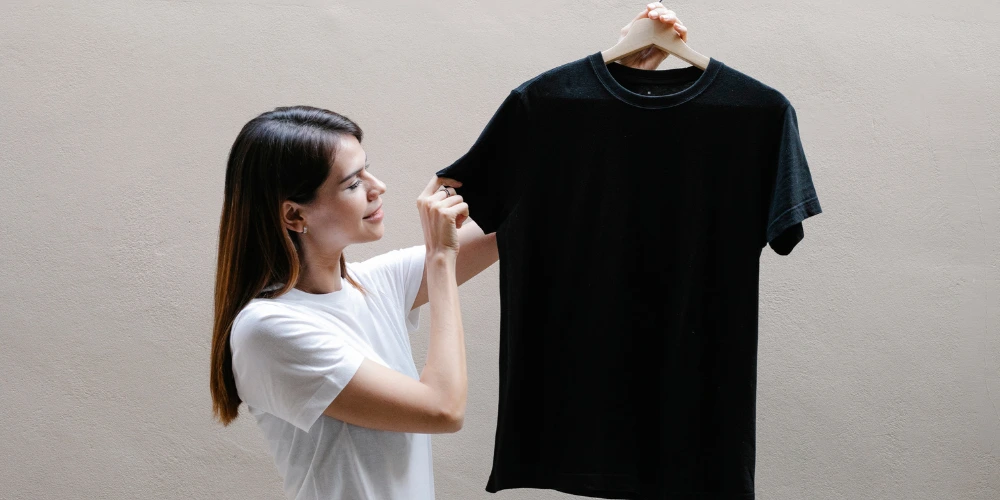
The best T-shirts are made from cotton and cotton blends. Because these fabrics offer durability, excellent softness, and breathability. However, choosing the best t-shirt fabric types is based on the following factors such as:
- Comfort & Durability
- Sustainability
- Seasonal consideration
- Cost affordability
- Versatility and Personal preference
Conclusion: Why order plain t-shirts with TeeTalkies
When you choose TeeTalkies for your plain t-shirt needs, you’re getting top-notch quality. Our collection of cotton t-shirts offers both comfort and durability, making them ideal for any business and promotional event.
Also, with our advanced printing techniques, you can display your designs in vibrant colors that really stand out. Whether you need bulk orders for promotions or high-quality blank products for your team, TeeTalkies provides the perfect mix of style, quality, and value. Let us help you make a lasting impression with our premium t-shirt collections.
Read More
T-Shirt Fabric Types FAQ
Cotton and cotton blend T-shirt fabrics are excellent for T-shirts due to their breathability, softness, and durability. Polyester fabrics are best if you want lightweight and elasticity.
Pima cotton, Egyptian cotton, and Supima cotton are high-quality cotton for t-shirts. They’re an excellent choice due to their durability and softness.
Cotton and cotton blend fabrics are best for daily use because of their durability and comfort.
Cotton, cotton blends, Lycra, and Linen are the most comfortable t-shirt materials. Cotton has the best breathability and comfort of all fabric types.
